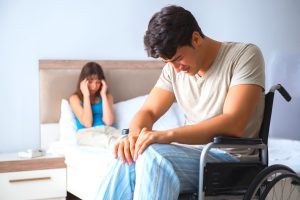Anyone who has ever sought the services of a South Florida personal injury lawyer – whether for a car accident, slip-and-fall, or medical malpractice – has likely seen or heard the phrase “free initial consultation” in attorney marketing materials. But what exactly is a personal injury lawyer free consultation? Is it really free? Are you agreeing to hire that attorney by booking this consult?
As our South Florida personal injury lawyers can explain, a free initial consultation is something like a first date – except neither party picks up the tab because there isn’t one. (Initial consultations really are free.) But you can think of them as an opportunity to gather insight regarding the viability and potential value of your case, clarify your goals, get a sense of how the process will work, and determine whether the attorney you’re meeting is someone with whom you can develop a rapport, trust, and general ease.
Here, we offer a deeper dive into what these sessions are – and are not – and how you can come best prepared.
What Are the Obligations in a Personal Injury Lawyer Free Consultation?
Just as there’s no guarantee of a second date after the first, there’s no obligation for you to hire an attorney with whom you meet for a free initial consultation. In fact, it’s generally expected that you’ll meet with more than one personal injury lawyer before deciding which one to hire. Arranging several consultations will also provide you with a more well-rounded view of the key points in your case and what you might expect.
But just as you have no obligation to hire the attorney, the attorney has no obligation to take your case. They may provide you with information, and then regrettably inform you they won’t be taking your case. This usually happens if the attorney feels it’s not a case they can win, either because it isn’t strong enough or they don’t have the depth of skill, experiences, or resources to take it on. Because Florida personal injury lawyers accept cases on a contingency fee basis, meaning they aren’t paid unless their client wins, they are inclined to be selective.
Meeting with an attorney also doesn’t mean you’re obligated to file a lawsuit. In fact, many personal injury claims can be resolved through negotiation before it ever gets to the point of filing a lawsuit.
 South Florida Injury Lawyer Blog
South Florida Injury Lawyer Blog










 Florida considers loss of enjoyment of life to be its own separate category of damages.
Florida considers loss of enjoyment of life to be its own separate category of damages.





 There may in fact be several legal theories upon which you may base a successful claim against Uber, Lyft, or other rideshare company for failure to protect against sexual assault. This is true for drivers as well as passengers (as both have reportedly been attacked).
There may in fact be several legal theories upon which you may base a successful claim against Uber, Lyft, or other rideshare company for failure to protect against sexual assault. This is true for drivers as well as passengers (as both have reportedly been attacked).